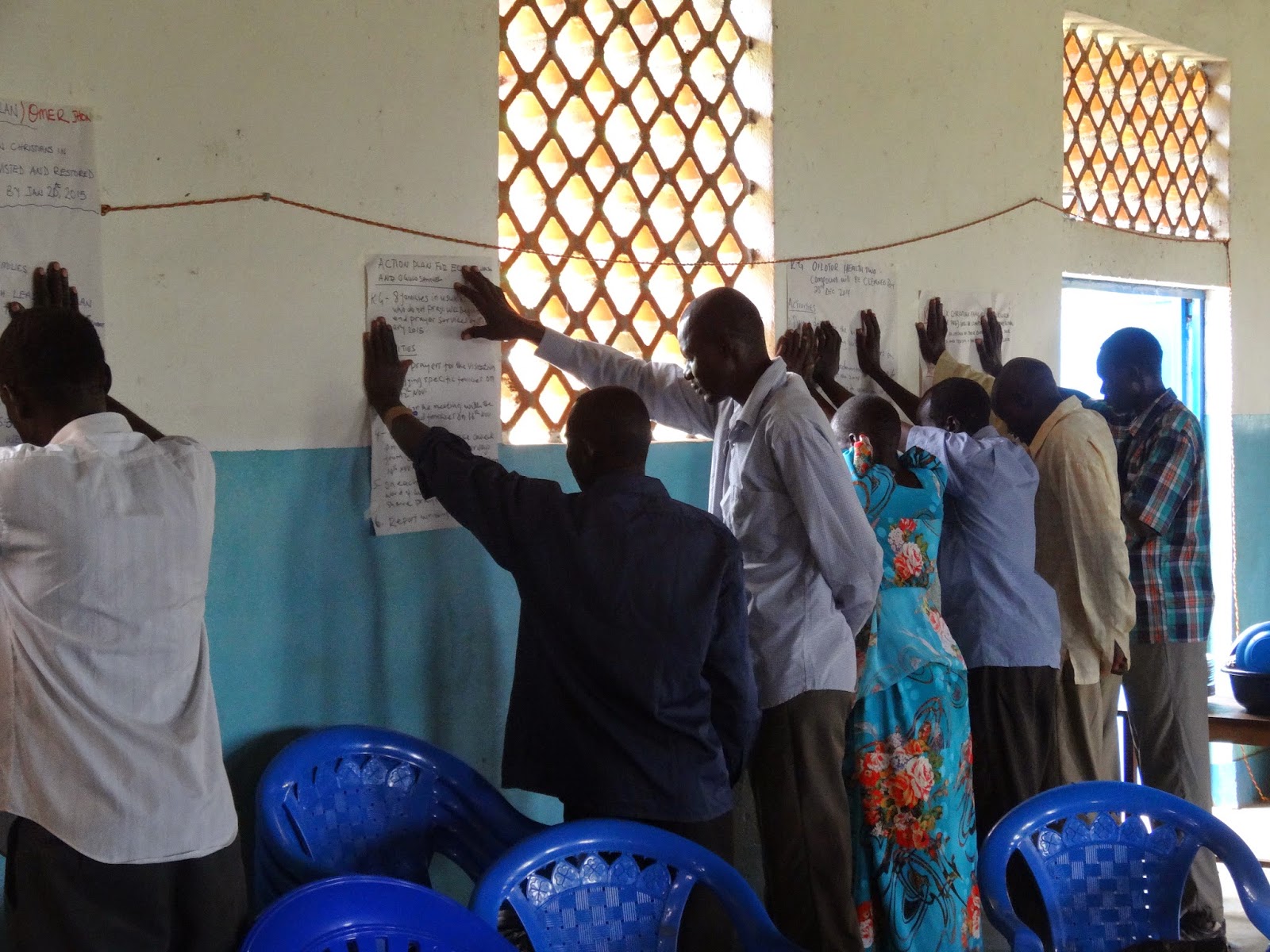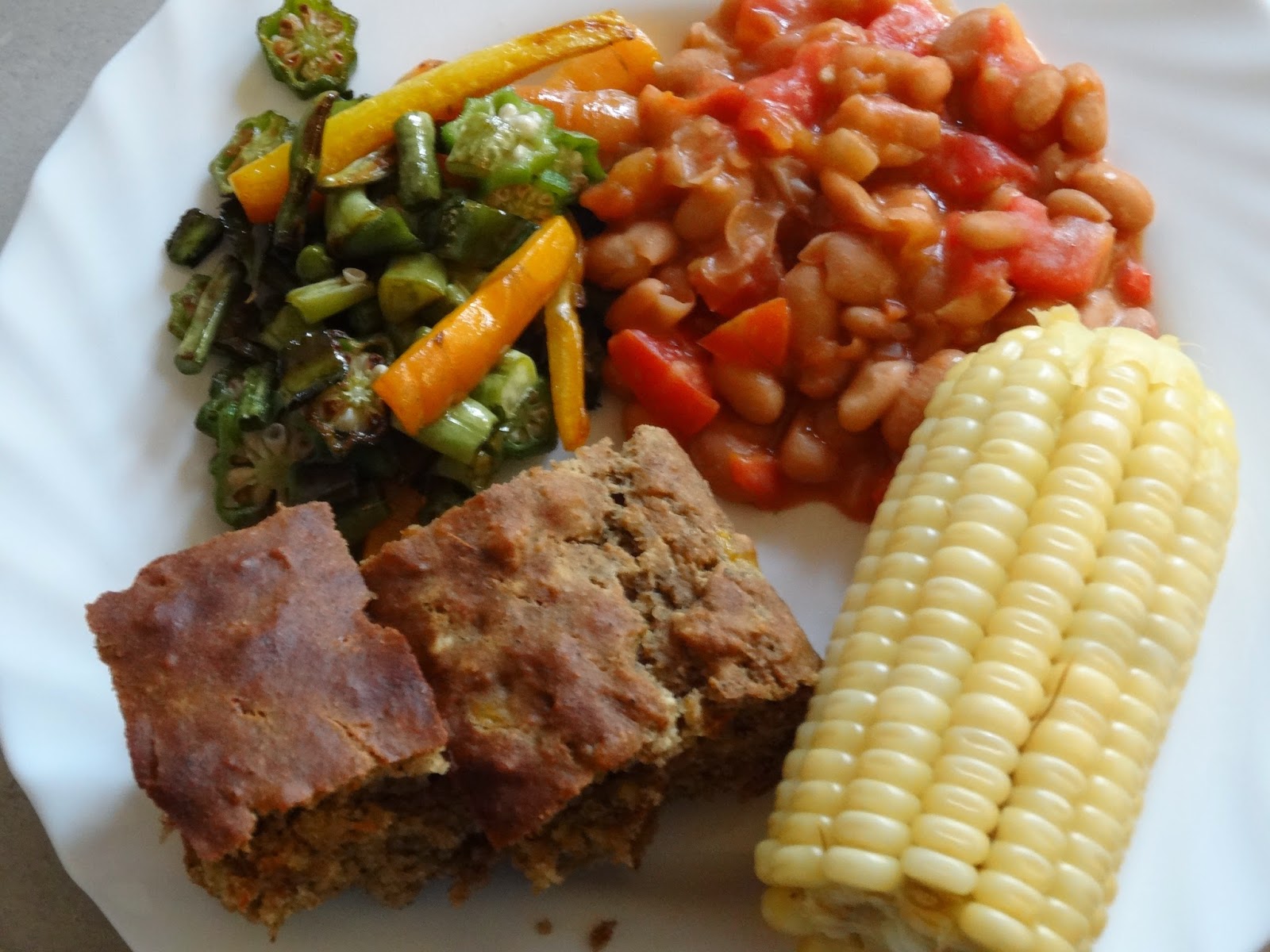(
Not in any particular order)
1.
Singing. Ugandans sing all the time. If you take a walk, every fourth person or so will be singing and almost always it's a Christian worship song to God. And the people here in church sing in perfect harmony effortlessly. It is breathtakingly beautiful.
2.
Avocados. I love them, and they are fresh and local, not shipped thousands of miles. I can get about 8 for $1.00.
3.
Animals at home. We are allowed to have goats and chickens and a dog and chameleons and really whatever animals we want, right in town. Two of my favorite things are: 1. catching cockroaches in the house and throwing them outside to watch the chickens eat them. 2. Throwing food scraps from the kitchen out the door and watching a feeding frenzy ensue between goats, chickens, guinea hens, a turkey, and a dog.

4.
Greetings. There is something fun about going through a whole series of ritualized greetings, especially when you are doing it in the local language. It's fun to see how long you can get the series of greetings to last until you run out of Ateso.
5.
Weather. It's hot at first, but once you get used to it, it's nice. It's kind of like living in a tropical paradise all year long. I never have to worry about scraping snow off my car or shoveling snow in the driveway. It stays a nice consistent temperature so I don't need that many different kinds of clothes. We can leave the door open any day of the year to let the breeze in. The mornings are my favorite time of day, when it is very cool outside, and the birds are chirping, and it's just beautiful. I also appreciate knowing every day what time the sun will rise and sun will set. Here I never have to check the weather online.
6.
Garden. I let Sara do all of the work in the garden, but I can to still enjoy the proceeds. It seems there is always something we are eating from the garden year round. We have a steady supply of greens and vegetables every day.

7.
Fruit trees. I sorely miss not having an avocado tree in our yard at the moment, but there is nothing like being able to pick oranges and bananas (and if you're Sara, mangoes and soursop too) right from our yard to immediately eat.
8.
Internet. Somehow, as rustic as things are here, I am able to have good internet. I have good connection for skyping with family, and good enough internet even to play games with my family online. This is such a blessing. I can't imagine the missionary life of years ago with no email, and not talking to family for years at a time. We are so blessed.
9.
Driving is interesting. Driving here is never boring. There are always people on the road (which also is scary since I don't want to hit them). But you never know what you will see. You may pass by circumcision rituals or cattle herders. You may pass by hilarious signs like - "
God is Able House of Drinks." You pass by people selling all kinds of things. You get to see trucks carrying more people than you can count. If you are lucky, you can see a motorcycle driver with a goat or cow on his lap.

10.
Ugandans' soft spoken nature. People here tend to be calmer and speak more softly, gently, and quietly compared to Africans of other countries. I appreciate this as it makes it easy to talk to people and not feel threatened or intimidated.
11.
Death. No I don't love or appreciate death. However, facing the reality of death all the time by hearing about people dying, seeing people sick, and seeing accidents on the road does something for me. It makes me think about the shortness of life and it reminds me to live a serious life of following Christ until he comes again or until I go to be with him.
12.
Ugandan Fast Food. Ugandan fast food is truly immediate unlike American fast food. You pull over your vehicle to the fast food area and instantly you have 20 hands reaching through your windows with chapatti, water, meat on a stick, roasted bananas, or roasted maize. There have been many days we have gotten home late and tired, and we simply stopped on the way home to get an avocado, popcorn, maize, or samosas. Makes for an easy dinner!

13.
Shopping is so easy. Food or basic necessities are never more than a hundred meters away it seems. Even out in the countryside, trading centers are common. Instead of having to travel to a big department store or big grocery store, you can walk a few meters from your house. Much of the time we do all of our grocery shopping on the way home from a trip, just by stopping at any of the hundreds of stalls of fruits and vegetables that line the side of the road.
14.
Sense of community. People here do things together. If there is a wedding or funeral everyone is invited. My friends went to Kenya recently for the funeral of a friend's sister. We just don't do things like that in the US. I love the sense of togetherness and caring for one another.
15.
Transportation. There are certain things I hate about transportation here. But I do enjoy being able to bicycle to town and to church and to be able to walk to most places in town. It keeps me in better shape and is better for the environment. I also appreciate that if you get stuck somewhere, anywhere, public transportation is simply a hand gesture away, either by bicycle, motorcycle, taxi, or bus.
16.
Meat. The meat here is tough to eat, but tasty. And I appreciate that I can eat meat here that has been well raised outside and not factory farmed.
17.
The markets. There is something exciting about going shopping at the market here. It's so colorful and so vibrant and so alive and so fresh.
18.
Animals in nature. You never know what cool animals you will see. Even in our region away from all the national parks, we regularly see chameleons, cool birds, bats, crazy big beetles, and swarms of flying termites. And sometimes we get lucky and see monkeys, skinks, baboons, mongooses and snakes.

19.
Power outages. This is one of the most frustrating parts about life here. But I include it here because it has a good side. I am on the computer too much, I do most of my work on it, my music, my games, my email, etc. The power outages force me to diversify, to go outside and play with Caleb, to read a book, to take a walk, to play my hand drum, to play board games, or to practice throwing knives with Sara.
20.
The smell. Every time I go to the US and come back to Uganda, I step off the airplane and take a deep breath. The smell is full of good memory and its a very pleasing smell of a tropical land, full of the aroma of burning fires (cooking fires and burning rubbish). Unfortunately I don't get to enjoy this smell all the time because I am now used to it, but I always love stepping off that plane and smelling this country.
21.
Fresh fish. We are close to Lake Kyoga so we get fresh fish for cheap and it's so tasty. We have tilapia, Nile perch, mudfish and others, but right now my favorite is Nile perch.
22.
Kids. There are kids everywhere since half the population is under 15 years old. They keep me smiling and they are so cute.
23.
Well dressed people. I know Sara would love to be able to wear trousers more often, but I have to say I appreciate the distinct dress of men and women here. There is something cool about men always dressing up wearing buttoned up shirts, and ladies always wearing skirts or dresses. Everyone tries to dress "smart." I would always dress like a slob were it not for this culture which helps me to try to look a bit nicer.
24.
Beauty in nature. I love the rock formations. I love the trees. I love the red soil, and the reddish roads. The national parks are amazing. Truly Uganda is the pearl of Africa. There are tons of varied climates, plains, mountains, lakes, and forests.
25.
Appreciating things more. Since we lack many things and many choices that we might otherwise have living in the USA, I think we appreciate things more. Since we have few books, we cherish the ones we have. Since we have few rare food items to purchase, we cherish the random finds of certain treats - for example molasses (for Sara), and Doritos (for me). Since we don't have Netflix or television, we enjoy re-watching our old movies.
There are things I don't like about life here too, but you can probably guess those things already and you probably pray about those things for us. But you need to know that not all of life here is hard, and that is why I wrote this post. For us, it does not feel like a sacrifice to be here. I thank God, and you, our supporters, for the privilege of being here.
























































